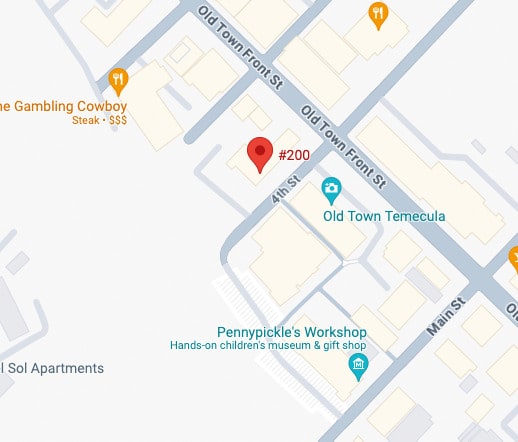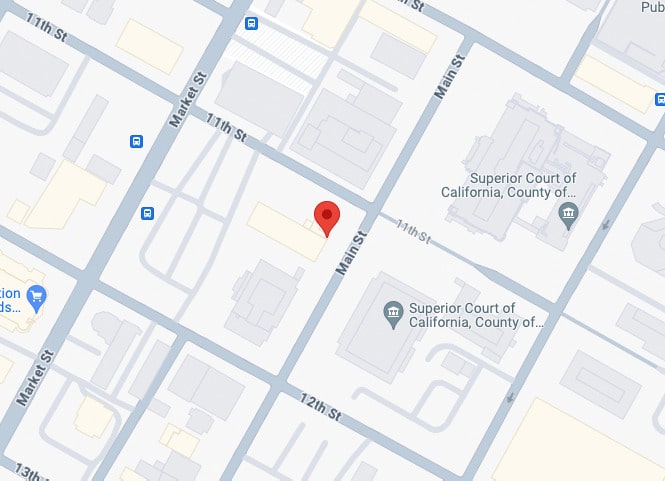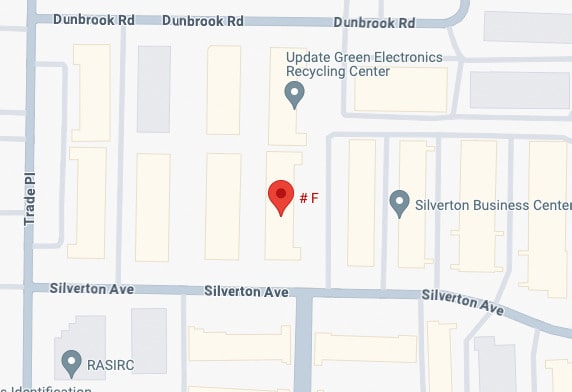If you've been arrested and can't afford to post bail, you could end up in police custody for an indefinite period. Fortunately, you can contact a bail bonds company to quickly secure the necessary funds. This will enable you to obtain your release and prepare for your upcoming trial.
Justice Bail Bonds is an experienced Jamul bail bonds company that provides efficient bond procedures and comprehensive online services at affordable prices. Our goal is to assist you in securing your release from jail promptly, allowing you to focus on what truly matters. With a track record of assisting numerous clients, you can trust us to handle your case with the utmost professionalism.
An Overview of The Bail Process
In the United States, individuals are considered innocent until proven guilty beyond a reasonable doubt. Furthermore, the government strives to guarantee that accused persons attend their court hearings. To achieve this goal, posting bail is a means of ensuring that defendants remain within the jurisdiction after their release.
In the criminal justice system, for a person to be released from custody, the accused must provide the court with bail, which can be in the form of money or an asset. The court holds onto the bail until the case is resolved. If the person follows the terms and conditions of their release and appears for all court dates, they will receive their money or property back once the criminal case is over.
However, if the accused escapes, jumps bail, or violates the terms of their release, the court could cancel the bail and confiscate it.
What Takes Place After an Arrest
Arrests are tense situations that often result in various criminal prosecution activities. The section that follows will cover the immediate aftermath of being apprehended.
Citation
If the police detain you, even for a short period, it is considered an arrest. Normally, the arresting officer will take you to the police station. If you are charged with a minor violation, you could be arrested, cited, and then released by the police. If this happens, you could go back home, but only if they give you a court appearance date.
Booking Process
After being taken to the police station, the next step is booking. During this process, the police will record your personal information and details of your arrest in their database. You will also undergo procedures such as being photographed and fingerprinted.
In certain cases, especially if you are charged with a serious crime like a felony, the police could also collect your DNA using an inner cheek swab. This DNA sample will be stored in the system. Once the booking process is complete, you will be allowed to make a phone call.
Stay in Detention or Get Released
After being detained by the police, some individuals could choose to post bail. In such cases, defendants usually receive a later court date. If the crime is severe and there is no bail available, or if the bail amount specified on the California bail schedule is too high to be paid, the accused will remain in detention until their first court appearance.
Complaint and Arraignment
The majority of arrests occur without a warrant, with the prosecutor's involvement coming after the arrest. When determining whether to file a complaint and pursue a criminal case, the prosecution reviews the police report as well as additional evidence. Once the prosecutor files the complaint, the person who was arrested becomes the defendant.
An arraignment is the initial court appearance. If an individual has been released from custody, their arraignment could take place a few days after their arrest. However, defendants who are still in police custody should make their initial court appearance within 48 hours following their arrest.
At the arraignment, the magistrate will:
- Inform you of your right to get legal counsel and if you’re unable to pay for one, start the process of assigning a public defender.
- Tell you about the charges.
- You should discuss your custody status with the judge. The judge has the authority to release you without requiring a bond, adjust the amount specified on the bail schedule, or take no action.
The next course of action in your case will depend on the details of the case, the laws of the jurisdiction, and the severity of the alleged crime. The court will take into account the prosecutor's evaluation of whether there is sufficient evidence to suggest that you committed the offense. You cannot move forward with your case until the court makes its decision. Moreover, the defendant can opt to plead guilty or not guilty at a later stage.
How Bail is Determined
The Eighth Amendment of the United States Constitution states that bail should be determined based on the likelihood of the accused appearing in court. If the bail amount is higher, the accused stands to lose more if they breach it. The amount set should be enough to achieve this goal without being unaffordable for the accused. It is the judge's responsibility to find a balance that meets both objectives.
Bail Schedules
California law stipulates a bail schedule for each county. This schedule lists the bond amounts for each offense. A bail schedule for less serious violations, such as petty theft, might be set at $10,000, for example. However, in cases involving more serious crimes like murder, the bail schedule could be as high as $250,000.
If you need to get released from jail immediately without waiting for your arraignment, you can pay the amount listed in the bail schedule. The bail schedule amounts are usually fixed and cannot be negotiated with the jail staff. However, judges can set bail at any amount they deem appropriate. They can also decide not to grant bail at all or release the offender on their own recognizance.
You can be released from custody under an Own Recognizance release if you agree to appear in court for all hearings. In simple terms, if you promise and sign a contract committing to attend all of your scheduled court appearances, the judge will release you from police custody. The judge could impose certain restrictions as part of the release.
Bail Hearings
To determine the bail amount, the judge will schedule a bail hearing. The bail schedule serves as the basis for determining the specific amount. Additionally, before reaching a verdict, the judge should take into account the various facts of the case.
The judge will usually take into account the following elements:
- The seriousness and type of the alleged offense.
- Your history of crimes.
- Your potential to escape before the trial.
- If you pose a risk to the public, the alleged victim, or yourself when released.
The judge could also consider your ability to afford bail. Your freedom is not correlated with your financial situation, as California law requires courts to take this into account.
Numerous factors are unrelated to the offense for which the defendant is being charged. Therefore, the bail amounts for two defendants facing the same crime could vary.
Various Options for Posting Bail
You need to post your bail after the court sets it. The accepted methods of posting bail can vary depending on the jurisdiction, but you can typically do so through:
- Paying your total bail, which is in the form of cash bail, directly to the court.
- Engaging a Jamul bail bonds agent to pay on your behalf.
- By granting the court control over a property's lien.
One advantage of cash bail or property bonds is that you could be eligible for reimbursement if your case is resolved. Bail bond companies usually require a non-refundable deposit of 10 percent. For example, if the total bail amount is $15,000, you would have to pay the agent a fee of $1,500. However, for those who don't have the funds to cover their bail, bail bonds are the most suitable option.
If the prosecution or the judge believes that you obtained the bail amount illegally, the court will halt your release and schedule a settlement conference. The term "feloniously acquired" refers to obtaining bail through an illicit method, transaction, or incident that qualifies as a felony under California law. It is your responsibility to provide evidence that you received the funds legitimately.
The magistrate will approve the bail if you comply. However, if you fail to comply, the judge could even increase the bail. Even if you have the financial means to post bail, you could consider using bail bonds to stay out of the spotlight, especially if you are accused of serious crimes such as human trafficking or drug trafficking for substantial profit.
Bail Conditions
Bail requirements are typically designed to protect the community and ensure your appearance in court. Common terms for bail include:
- Abiding by all statutes.
- Stop drinking, doing drugs, and taking part in random drug and alcohol testing.
- Not carrying a firearm.
- Keeping away from certain people or locations.
- Complying with curfew rules.
- Respecting the limitations on travel.
- Seeking or retaining employment.
- Giving up your driver's license or passport.
The judge will take into account several considerations when deciding on the appropriate bail terms. These considerations would include:
- Your history of crimes.
- Your potential to escape the jurisdiction.
- Your state of mind and body.
- The gravity of the crime.
- Whether you have a history of substance abuse.
Generally, the court will impose specific requirements based on the specifics of your case. For instance, if you are accused of assault and placed on bail, the court could require you to stay away from the alleged victim. Furthermore, if you are caught driving while intoxicated, the court could impose additional conditions on your release, such as installing an ignition interlock device and agreeing to random testing.
Even if the judge has the legal authority to determine what constitutes a fair bail condition, there are limitations. If a bail requirement unnecessarily interferes with your fundamental rights, it is unenforceable.
What To Expect When You Infringe On Your Release Conditions
If an individual accused of a crime violates a bail requirement, the judge has several options available. These include:
- Issuing a warning.
- Issuing a warrant for an arrest.
- Regaining the defendant's custody and withdrawing the bail.
- Imposing new or more stringent bail requirements.
- Increasing the bail sum.
- Charging the defendant with contempt of court.
The circumstances of the case will determine the judge's decision. A misdemeanor crime could result in a warning or a less severe punishment. However, a more serious crime, such as threatening witnesses, could lead to the judge revoking your bail.
California Bail Revocation
Jumping bail is illegal under California law. If someone breaches their bond, they will face both the charges for failure to appear (FTA) and their original criminal case.
The FTA is considered a misdemeanor, which can result in a potential six-month jail sentence if charged as such. However, if proven, the FTA is considered a felony and carries a maximum sentence of three years behind bars.
Bond Forfeiture
The next step is for them to forfeit your bail bond when the judge revokes your bail. This means that any assets or property used to secure your release must be surrendered to the court.
A bond forfeiture notice will be given to both the bondsman and you. The bail bond agency will have 180 days, as per the court's order, to return you to custody before the forfeiture becomes final. In some cases, the agency might use bounty hunters to find and capture you. If that doesn't happen, the bail bond business will reimburse the court for the bail amount.
Bail Reinstatement
Bail can be set aside through remission, even after it has been forfeited. In the bail remission action, the aim is to seek reimbursement of the forfeited money or property. Typically, there is a specific timeframe from the forfeiture date within which you can file the motion. It is up to the trial court to decide whether to grant relief from the forfeiture.
How to Get Your Money Back When Your Case Is Dropped
Posting bail can be a significant source of stress, especially when your loved one is in police custody, as there are numerous other reasons to be stressed in such situations. The costs can quickly add up, including bail, attorney fees, and court expenses. Consequently, you could wonder if you will get your bond money back if your criminal case is dropped. The answer largely depends on how you posted the bail.
If you hired a Jamul bail bonds firm, you would not be eligible for a premium return, regardless of the case's outcome. This is because the business paid the full cost of your bond to the court on your behalf.
Once the case is dismissed, you should receive a refund if you were able to provide the court with the necessary bail money. After your charges are dropped, the court will issue a return order. On average, it takes six weeks for a refund check to arrive in the mail. If it takes longer, you would have to start the procedure over.
Is It Better to Post Your Bail or Wait for the Court Hearing?
The most appropriate course of action would be to compare the costs of incarceration versus freedom. Using a bondsman typically incurs a non-refundable fee, usually around ten percent, which can add up. However, staying behind bars can also have expenses and repercussions, such as lost time, decreased income, and potential job loss.
Your criminal defense lawyer could be able to convince the judge to grant you release on your own recognizance or reduce your bail while you await your court appearance. Before making a decision, it would be beneficial for you to evaluate your situation and consider the available possibilities.
Once Your Bail is Posted, How Long Does It Take To Be Released?
The response to this question varies depending on the query. The decision to release an accused individual depends on several variables, including:
- Traffic—Just like in any other bureaucracy, the length of time it takes to release a defendant from jail depends on the volume of people going through. If you posted bail bonds at a jail that is handling a large number of offenders, it could take many hours.
- Staff—A higher number of staff members on duty is associated with a quicker discharge.
- The queue number assigned to you.
- Paperwork—The process of bailing out involves a significant amount of paperwork, which the officer in charge of your release will carefully review before letting you go. This is because law enforcement wants to ensure that you are not released while there is a pending arrest warrant. As a result, this could prolong the waiting period.
Once all documentation is completed, signed, and transferred, you can expect your release in just a few hours with the assistance of a knowledgeable Jamul bail bonds agent.
Find a Jamul Bail Bonds Firm Near Me
The modern economy plays a crucial role in our lives, and unexpected bail payments can be quite costly. Contacting a reputable Jamul bail bonds agency promptly after being detained can greatly influence your release from custody and the overall outcome of your legal case.
At Justice Bail Bonds, we aim to help you get out of police custody as quickly as possible. We understand that paying the bail amount can be difficult for many people. Therefore, we offer flexible payment plans that can be tailored to your financial situation, so you don't have to face any further financial burden. If you're interested in discussing how we can help you, feel free to call us at 714-541-1155.









